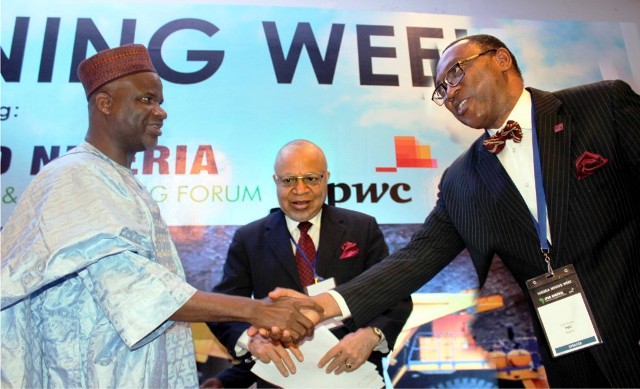Business
Recession: Textile Firms Decry Local Raw Materials Cost

Textile companies in Nigeria have decried the increase in cost of raw materials, saying it, has affected the level of production.
In separate interviews with newsmenThursday in Abuja, some textile companies’ representatives said that the economic downturn in the country had negatively impacted on their production capacity.
Mr Sumit Saigal of Sun Flag Nigeria Limited, Lagos, said the company was not able to produce to capacity due to the high cost of raw materials.
The company, which has been in Nigeria for almost 60 years and has no fewer than 1,000 workforce, only produces Ankara fabrics which are 100 per cent made in Nigeria.
“Sun Flag Company has its farm in Futua, Kastina State were it grows cotton which is transferred to Ikorodu in Lagos State for further processing.
“The basic challenges that we are facing include the high cost of electricity, travel costs, fuel costs and high cost of raw materials; these are our basic concerns.
“Due to the economic downturn, cost of raw materials has increased tremendously and patronage has declined.
“We grow our own cotton, which is used to produce top quality Ankara, here in Nigeria.
“We want to encourage Nigerians to embrace locally made products; it will help to revitalise the economy.
“I believe that Nigeria will soon bounce back from this recession and business will be back to normal,’’ Saigal said.
Mr Parvesh Aswani of Noel Carpets and Rugs, based in Lagos, said high cost of electricity was the main impediment to the company’s capacity to produce optimally.
Aswani said that the company had been in Nigeria for 30 years with a workforce of about 5,000 and thanked Nigerians for embracing the company products.
He also said that the company’s products were 100 per cent manufactured in Nigeria although some raw materials were sourced from various other countries.
“We source our raw materials from various countries, including Nigeria to ensure that the quality of our products meet international standard and we have the capacity to customarise high quality carpets and rugs.
“We also export our products to many countries including Ghana, Senegal and the U.S, but due to the high cost of generating electricity, we are just managing to supply six African countries now.
“Due to the economic situation, we are facing a lot of challenges in importing raw materials due to high foreign exchange rate.
“We are hopeful that the recession will end soon so that businesses can grow and Nigeria’s economy can improve,” Aswani said.
Business
Nigeria’s ETF correction deepens as STANBICETF30, VETGRIF30 see 50% decline in a week

Business
BOI Introduces Business Clinic

Business
Dangote signs $400 mln equipment deal with China’s XCMG to speed up refinery expansion

-
Maritime3 days ago
Nigeria To Pilot Regional Fishing Vessels Register In Gulf Of Guinea —Oyetola
-
Maritime3 days ago
Customs Declares War Against Narcotics Baron At Idiroko Border
-

 Sports3 days ago
Sports3 days agoGombe-Gara Rejects Chelle $130,000 monthly salary
-
Maritime3 days ago
NIMASA,NAF Boost Unmanned Aerial Surveillance For Maritime Security
-

 Sports3 days ago
Sports3 days agoTEAM RIVERS SET TO WIN 4×400 ” MORROW” …Wins Triple jump Silver
-
Maritime3 days ago
NIWA Collaborates ICPC TO Strengthen Integrity, Revenue
-

 Sports3 days ago
Sports3 days agoNPFL Drops To 91st In Global League Rankings
-

 Sports3 days ago
Sports3 days agoNPFL Impose Fines On Kwara United Over Fans Misconduct

